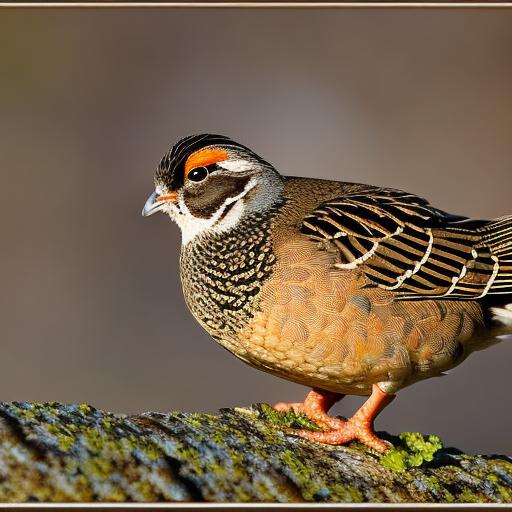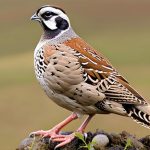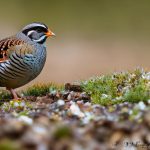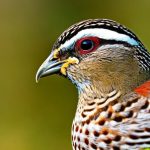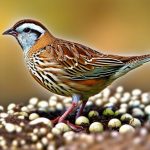Keeping quails outside can be a rewarding and enjoyable experience for both hobbyists and commercial breeders. Quails are small, ground-dwelling birds that are known for their hardiness and adaptability, making them well-suited for outdoor living. Whether you are raising quails for eggs, meat, or simply as pets, providing them with a suitable outdoor environment is essential for their health and well-being. In this article, we will explore the key considerations for keeping quails outside, including housing, diet, safety, environmental conditions, and health management. By understanding and implementing these factors, you can create a thriving outdoor habitat for your quails and ensure their long-term success.
Key Takeaways
- Quails can be successfully kept outside with the right housing, diet, and environmental conditions.
- Choosing the right housing for outdoor quails involves providing shelter, protection from predators, and adequate space.
- Outdoor quails require a balanced diet of commercial feed, fresh water, and access to insects and greens for optimal nutrition.
- Ensuring safety and protection for outdoor quails involves predator-proofing the housing and providing secure fencing.
- Managing environmental conditions for outdoor quails includes providing shade, ventilation, and protection from extreme weather.
- Regular health checks, parasite control, and access to dust baths are essential for the wellness of outdoor quails.
- Successfully keeping quails outside requires careful consideration of housing, nutrition, safety, environmental conditions, and health.
Choosing the Right Housing for Outdoor Quails
When it comes to housing outdoor quails, there are several options to consider, including coops, aviaries, and pens. The type of housing you choose will depend on the number of quails you plan to keep, your available space, and your specific needs and preferences. Coops are ideal for smaller flocks and provide protection from predators and the elements. Aviaries offer more space and freedom for quails to move around, making them suitable for larger flocks. Pens are another popular choice, offering a balance of protection and space for quails to roam. Regardless of the housing type, it’s important to ensure that the structure is secure, well-ventilated, and provides adequate shelter from sun, wind, and rain. Additionally, the flooring should be easy to clean and maintain to promote good hygiene and prevent the buildup of waste and bacteria.
In addition to the physical structure, it’s important to consider the bedding and nesting materials for outdoor quails. Providing a comfortable and clean bedding material, such as straw or wood shavings, can help keep quails warm and dry while also absorbing moisture and odors. Nesting boxes should also be provided to give quails a safe and private space to lay their eggs. By choosing the right housing and providing suitable bedding and nesting materials, you can create a comfortable and secure living environment for your outdoor quails.
Providing the Proper Diet and Nutrition for Outdoor Quails
Proper diet and nutrition are essential for the health and well-being of outdoor quails. Quails are omnivorous birds that require a balanced diet consisting of high-quality feed, fresh water, and occasional treats. A commercial quail feed that is specifically formulated for their nutritional needs is the foundation of their diet. This feed should contain a balanced mix of protein, vitamins, minerals, and other essential nutrients to support their growth, egg production, and overall health. Additionally, providing access to fresh water at all times is crucial for quails to stay hydrated and maintain proper bodily functions.
In addition to commercial feed, outdoor quails can benefit from supplemental treats such as fruits, vegetables, mealworms, and greens. These treats not only provide variety in their diet but also offer additional nutrients and enrichment. It’s important to offer treats in moderation to prevent overfeeding and ensure that they do not replace the main feed. Furthermore, providing access to grit or small stones is important for quails to aid in digestion by grinding their food in their gizzards. By offering a balanced diet of commercial feed, fresh water, and occasional treats, you can ensure that your outdoor quails receive the proper nutrition they need to thrive.
Ensuring Safety and Protection for Outdoor Quails
Ensuring the safety and protection of outdoor quails is paramount to their well-being. Quails are vulnerable to a variety of predators, including foxes, raccoons, birds of prey, and even domestic pets. Therefore, it’s essential to implement measures to safeguard them from potential threats. This can be achieved by using sturdy fencing or wire mesh to enclose their outdoor living area and prevent unauthorized entry by predators. Additionally, installing a secure door or gate with latches can further deter predators from gaining access to the quail enclosure.
Furthermore, providing adequate shelter within the housing structure is important for quails to seek refuge from predators and inclement weather. This can include hiding spots, roosting bars, or elevated platforms where quails can perch safely out of reach from ground-dwelling predators. Implementing predator-proofing measures such as burying wire mesh underground around the perimeter of the enclosure can also prevent burrowing predators from gaining access. By prioritizing safety and protection measures, you can create a secure outdoor environment for your quails to thrive without the constant threat of predators.
Managing the Environmental Conditions for Outdoor Quails
Managing the environmental conditions for outdoor quails is crucial for their health and comfort. Quails are sensitive to temperature extremes, so it’s important to provide adequate shelter and ventilation within their housing structure. During hot weather, providing shade and access to cool areas can help prevent heat stress in quails. This can be achieved by positioning their housing in shaded areas or using tarps or natural vegetation to create shaded spots within the enclosure. Additionally, providing access to shallow water baths or misting systems can help quails regulate their body temperature during hot weather.
Conversely, during cold weather, providing insulation and supplemental heat sources can help keep quails warm and comfortable. This can include adding extra bedding for insulation, using heat lamps or heated pads in their housing structure, and sealing any drafts or gaps that may let cold air in. It’s important to monitor the temperature within the enclosure regularly and make adjustments as needed to ensure that it remains within a comfortable range for the quails. By managing the environmental conditions effectively, you can create a comfortable and safe outdoor habitat for your quails throughout the changing seasons.
Health and Wellness Considerations for Outdoor Quails
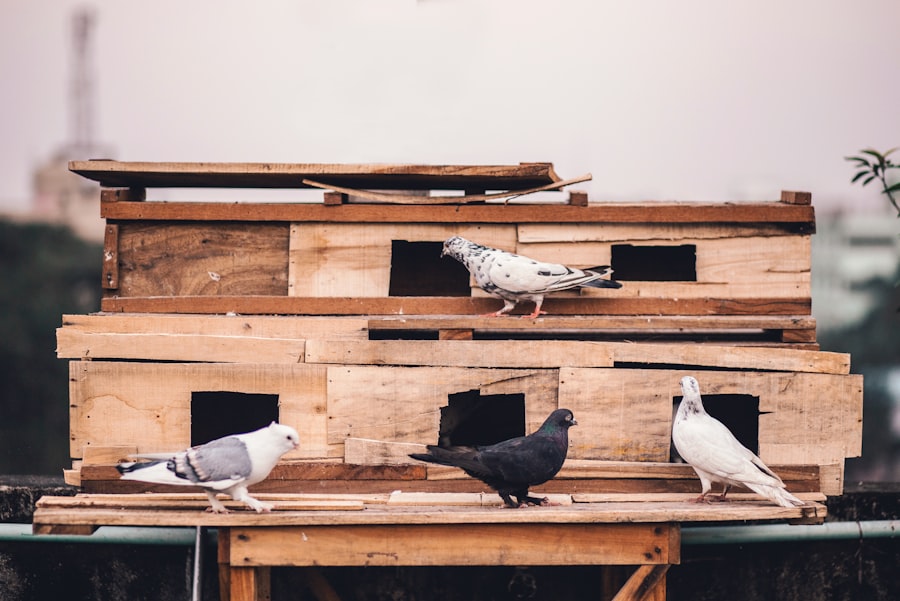
Maintaining the health and wellness of outdoor quails is essential for their long-term success. Regular observation and monitoring of quail behavior, appearance, and egg production can provide valuable insights into their overall health. Additionally, implementing a proactive healthcare routine that includes regular cleaning of their living environment, parasite control, and vaccination against common diseases can help prevent potential health issues.
Furthermore, providing opportunities for exercise and mental stimulation can contribute to the overall well-being of outdoor quails. This can include providing ample space for them to move around freely within their enclosure, as well as offering enrichment activities such as dust baths, foraging opportunities, and perches for roosting. Additionally, maintaining good hygiene practices by regularly cleaning their living environment, replacing bedding materials, and providing access to clean water can help prevent the spread of diseases and parasites.
In the event of illness or injury, it’s important to have a plan in place for seeking veterinary care from a professional with experience in avian medicine. Being proactive in addressing any health concerns promptly can help prevent further complications and promote a speedy recovery for affected quails. By prioritizing their health and wellness through regular observation, proactive healthcare measures, and access to veterinary care when needed, you can ensure that your outdoor quails lead healthy and fulfilling lives.
Tips for Successfully Keeping Quails Outside
Successfully keeping quails outside requires careful consideration of their housing, diet, safety measures, environmental conditions, and health management. By choosing the right housing structure that provides security, comfort, and adequate space for your quails to thrive, you can create a suitable outdoor habitat for them. Providing a balanced diet of commercial feed, fresh water, and occasional treats ensures that they receive the proper nutrition they need to stay healthy.
Implementing safety measures such as predator-proof fencing, secure doors or gates, and adequate shelter within their enclosure protects them from potential threats. Managing the environmental conditions by providing shade, ventilation, insulation, and supplemental heat sources as needed helps keep them comfortable throughout changing seasons. Prioritizing their health and wellness through regular observation, proactive healthcare measures, good hygiene practices, and access to veterinary care when needed ensures that they lead healthy and fulfilling lives.
By following these tips and considerations for keeping quails outside, you can create a thriving outdoor habitat for your quails while enjoying the rewards of raising these fascinating birds. Whether you are a hobbyist or commercial breeder, providing a suitable outdoor environment for your quails can lead to a fulfilling experience for both you and your feathered friends.
If you’re considering keeping quails outside, it’s important to provide them with a suitable coop. The Producers Pride Sentinel Chicken Coop, featured in a related article on PoultryWizard, offers a practical and spacious solution for housing your quails. This coop provides the necessary protection and space for your quails to thrive in an outdoor environment. Check out the article here for more information on creating a comfortable and secure living space for your quails.
FAQs
What are the benefits of keeping quails outside?
Quails are well-suited to outdoor environments and can thrive in natural conditions. Keeping quails outside allows them to have access to natural sunlight, fresh air, and a more natural diet.
What type of housing do quails need when kept outside?
Quails need a secure and predator-proof housing when kept outside. This can include a coop or aviary with proper ventilation, protection from the elements, and a safe place for them to roost and lay eggs.
What should be considered when keeping quails outside?
When keeping quails outside, it’s important to consider their safety from predators, access to clean water and food, protection from extreme weather conditions, and proper space for them to roam and forage.
Can quails be kept outside in all climates?
Quails can be kept outside in a variety of climates, but it’s important to provide them with appropriate shelter and protection from extreme temperatures, whether it’s hot or cold. It’s also important to consider the specific needs of the quail species being kept.
What are some potential challenges of keeping quails outside?
Some potential challenges of keeping quails outside include predator attacks, exposure to diseases from wild birds, and the need for regular maintenance of their outdoor housing and environment.
Meet Walter, the feathered-friend fanatic of Florida! Nestled in the sunshine state, Walter struts through life with his feathered companions, clucking his way to happiness. With a coop that’s fancier than a five-star hotel, he’s the Don Juan of the chicken world. When he’s not teaching his hens to do the cha-cha, you’ll find him in a heated debate with his prized rooster, Sir Clucks-a-Lot. Walter’s poultry passion is no yolk; he’s the sunny-side-up guy you never knew you needed in your flock of friends!

